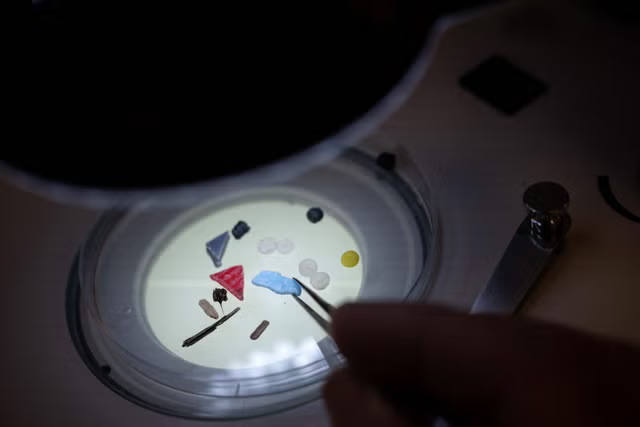An "exciting" new Parkinson's disease drug promises to not only treat but to cure the condition at its root cause.
Early clinical trials have shown that the drug, which works by using the patient's own immune system to fight the disease, is effective and well tolerated by patients with minimal, short-lived side effects.
Read more: What Is a Health Savings Account?
Parkinson's is a neurodegenerative disorder that affects over 8.5 million people worldwide, according to World Health Organization estimates. It is characterized by a range of symptoms, including balance problems, involuntary movements, a characteristic tremor, loss of smell, sleep disorders and cognitive impairment, which all gradually get worse over time.
There is currently no cure for Parkinson's, although treatments and surgeries can reduce the symptoms.
The disease is thought to occur when cells in specific regions of the brain become damaged or die. These cells produce a brain signaling molecule called dopamine, so as they disappear so too do our levels of this important chemical messenger. This lack of dopamine reduces our brain's ability to communicate both across different brain regions and to different areas of the body, resulting in the wide range of symptoms seen in Parkinson's disease.
Read more: Compare the Top Health Savings Account (HSA) Providers
Exactly why these dopamine-producing cells die is a bit of a mystery, and experts believe it may be due to a combination of genetic and environmental factors. What we do know is that people with Parkinson's show a build up of abnormal protein clumps in specific areas of the brain, which are thought to contribute to brain cell degeneration.
These abnormal protein build ups are known as Lewy bodies and their major component is a protein called alpha-synuclein. In healthy individuals, alpha-synuclein is thought to play an important role in communication between nerve cells. However, when these proteins become mutated, they start to clump together and damage the surrounding brain cell.
But what if there was a way to remove these protein clumps? This is where our immune systems come in.
When we get sick, our immune systems memorize specific molecules on the surface of disease-causing organisms so that they can easily recognize them if they ever attack us again. They store these memories in the form of antibodies, which attach themselves to the surface molecules of disease-causing agents. Vaccines work by training our immune systems to recognize these surface molecules without having to actually get infected.
Now, a new drug by the U.S. biotechnology company Vaxxinity promises to train our immune systems to fight these alpha-synuclein protein build ups in the brains of Parkinson's patients.
"This is exciting because we target the root cause of Parkinson's and not the symptoms," Lou Reese, co-founder of Vaxxinity, told Newsweek. "It's the first drug ever to take a patient go from positive to negative."
In a new study, published in the journal Nature Medicine, the Vaxxinity team shared the results of a phase 1 clinical trial to assess the efficacy and safety of their new drug, known as UB-312.
"We see a significant reduction in the toxic protein and a corresponding statistically significant improvement in symptoms," Reese said. "It's the first real hope for patients and their families in the battle against Parkinson's."
The study explored the effects of the drug in 13 patients over a 44-week period. During this time, the participants began to produce antibodies against alpha-synuclein that were shown to reach the brain and interact with the target protein.
The trial also demonstrated that the drug was safe and well tolerated among patients with minimal side effects. One participant did report a deep vein thrombosis (a blood clot blocking the vein) 50 days after receiving the medication, but it's unclear whether this was related to the drug. The adverse event was short-lived, but the team say that further research should investigate any potential relationships between UB-312 and blood clotting.
The drug is now entering phase 2 clinical trials. Once approved, it could have a wide range of applications beyond Parkinson's disease due to the variety of diseases that stem from alpha-synuclein build ups in the brain.
"[UB-312] has broad implications for other alpha-synucleinopathies, including REM sleep disorder, Lewy body dementia, and multiple systems atrophy," Reese said.
Vaxxinity is also working on similar treatments for Alzheimer's disease, as well as migraines, high blood cholesterol, and COVID-19.
Do you have a tip on a health story that Newsweek should be covering? Let us know via science@newsweek.com.
Disclaimer: The copyright of this article belongs to the original author. Reposting this article is solely for the purpose of information dissemination and does not constitute any investment advice. If there is any infringement, please contact us immediately. We will make corrections or deletions as necessary. Thank you.



